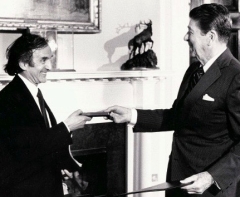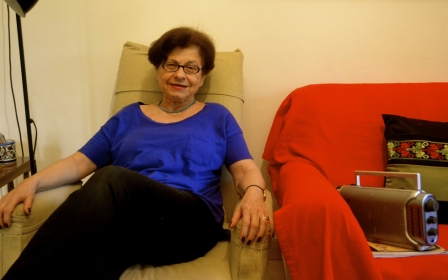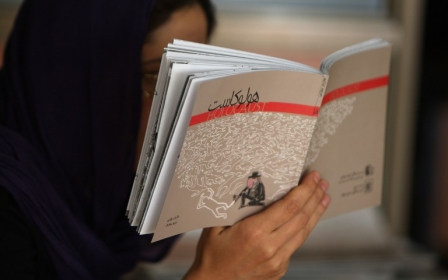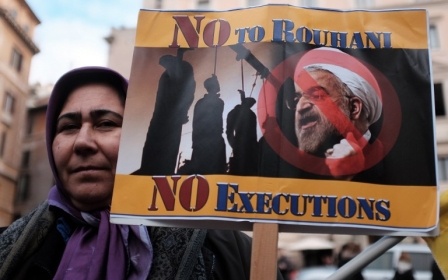Elie Wiesel, Nobel laureate, Holocaust survivor dies at 87
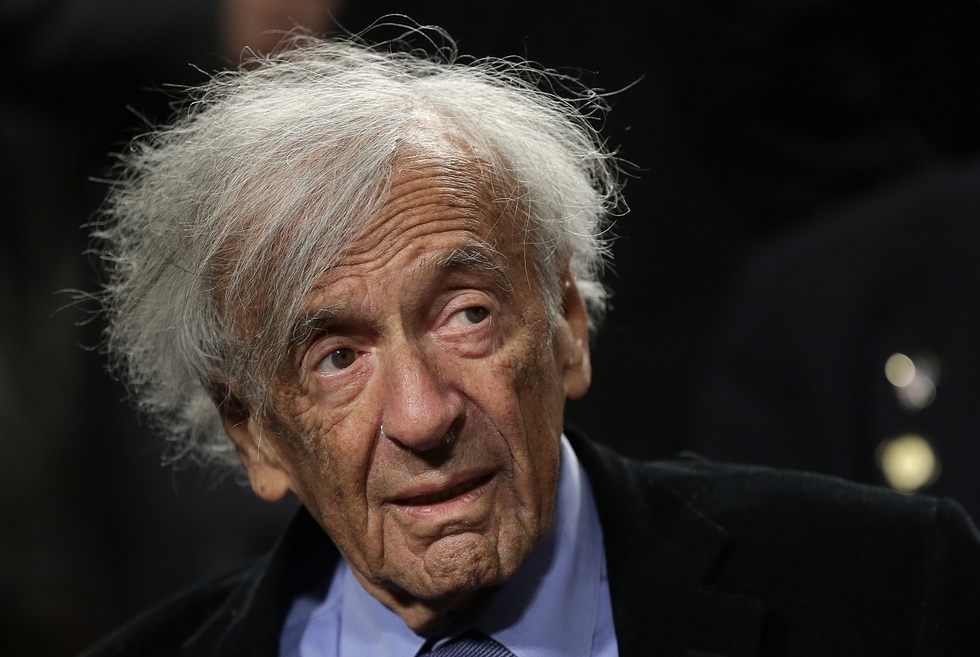
Elie Wiesel, the Holocaust survivor, renowned writer and Nobel peace laureate who worked to keep alive the memory of Jews slaughtered during World War II, has died, Israel's Yad Vashem Holocaust centre said on Saturday.
A spokesman for the centre confirmed Wiesel's death, but had no further details. The New York Times reported that he died at his home in Manhattan.
Romanian-born Wiesel was perhaps best known for his major role in promoting Holocaust education, and for perpetuating the memory of the Holocaust in the post-World War II era with his memoir Night, based on his experience as a teenager in the Auschwitz concentration camp, Israel's Haaretz newspaper said.
Wiesel was 87, and had been living in the United States, where he became a citizen in 1963.
Israeli Prime Minister Benjamin Netanyahu in a statement in reaction to Wiesel's death called him a "beacon of light and an exemplar of humanity that believes in man's good".
"The state of Israel and the Jewish people bitterly mourn the death of Elie Wiesel," Netanyahu said.
"Elie, a master of words, expressed in his unique personality and fascinating books the victory of human spirit over cruelty and evil.
"In the darkness of the Holocaust, in which six million of our brothers and sisters perished, Elie Wiesel was a beacon of light and an exemplar of humanity that believes in man's good."
Despite, its eventual popularity, Night sold fewer than 2,000 copies in its first 18 months in the US after after its publication there in 1960, Haaretz said. However, the book did attract much attention among reviewers and created a higher media profile for Wiesel; it has gone on to sell more than six million copies.
In 2006, Oprah Winfrey selected a new translation of Night by Wiesel’s wife Marion for her book club, helping to push the book to a top spot on The New York Times’ best-seller list for nonfiction paperbacks. The book now appears in 30 languages, according to Haaretz.
He won the Nobel Peace Prize in 1986, described as having "made it his life's work to bear witness to the genocide committed by the Nazis during World War II".
He was called at the time "the world's leading spokesman on the Holocaust".
Wiesel, born Eliezer Wiesel on 30 September, 1928, grew up in a small town in Romania.
He was raised with three sisters - two older and one younger - by their mother and father in a Jewish community until they were all detained during the Holocaust when he was a teenager.
Wiesel was called the world's leading spokesman on the Holocaust when he won the Nobel Peace Prize
His mother and younger sister were killed in the gas chamber at Auschwitz, according to his biography on the Nobel website.
His father later died of dysentery and starvation at Buchenwald, where Wiesel was freed by US soldiers at the age of 17, it said.
He was later reunited with his two older sisters in France, and Wiesel eventually studied at the Sorbonne.
While Wiesel's focus was the Holocaust and the plight of the Jewish people, he was also a rights activist on various other subjects.
He had long served as a professor of Judaic studies and the humanities in the US.
Soon after he won the Nobel prize, Wiesel and his wife founded The Elie Wiesel Foundation for Humanity with a mission to "combat indifference, intolerance and injustice through international dialogue and youth-focused programs that promote acceptance, understanding and equality".
Wiesel travelled back to Auschwitz in 2006 with US talk show host Winfrey. He also accompanied US President Barack Obama and German Chancellor Angela Merkel on a tour of the Buchenwald camp.
New MEE newsletter: Jerusalem Dispatch
Sign up to get the latest insights and analysis on Israel-Palestine, alongside Turkey Unpacked and other MEE newsletters
Middle East Eye delivers independent and unrivalled coverage and analysis of the Middle East, North Africa and beyond. To learn more about republishing this content and the associated fees, please fill out this form. More about MEE can be found here.


